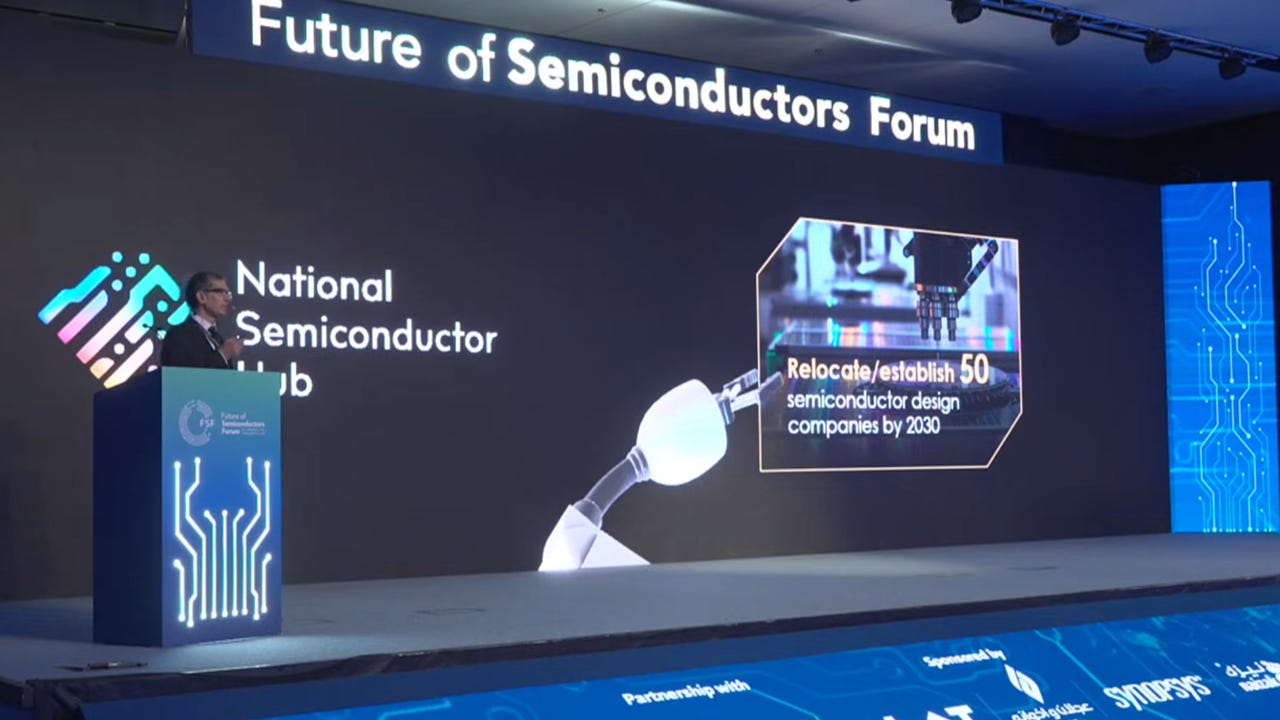At least 50 semiconductor design companies will be established in Saudi Arabia by 2030 after a new initiative was launched to develop the sector in the Kingdom, Arab News reported.
This undertaking will be supported by a deep tech venture capital fund that exceeds SR1 billion ($266 million) as part of a new National Semiconductor Hub.
The intiative will also provide access to SR150 million in support products from Saudi Arabia’s National Technology Development Program, which is integral to Vision 2030.
Unveiled during the third edition of the Future of Semiconductors Forum in Riyadh, the hub is a strategic effort to establish a semiconductor design industry ecosystem in the Kingdom, potentially worth upward of SR50 billion.
This initiative is part of Saudi Arabia’s broader effort to incentivize and attract talent to the sector. It emphasizes innovation over fundraising by launching a deep tech venture capital fund exceeding SR1 billion and investing in the industry.
Moreover, the hub seeks to attract 25 world-class experts in the field through the premium residency program and aims to train 5,000 engineers in semiconductor design by 2030.
Following the global shortages of semiconductors in the wake of the 2019 epidemic, the sector’s importance was underscored, prompting the Kingdom to embark on a strategy to address it.
Speaking during the forum, Ross Jatou, president of the Public Investment Fund subsidiary Alat Semiconductors, underscored the importance of the intersectional nature of this venture, saying: “I argue that future is where you integrate many technologies together that in the past were considered very different. Now this is pretty sophisticated, and sometimes we take it for granted, it’s in everybody’s phone and everybody’s car, and we have it everywhere. Alat will not be able to do this alone.”
He added: “As the saying goes, it takes a village to raise a child, and luckily, with the National Semiconductor hub, with the help of KACST (King Abdulaziz City for Science and Technology) and KAUST (King Abdullah University of Science and Technology) we’re going to make that happen. The Silicon Valley took decades to build. With the national semiconductor hub, we will be able to accelerate this by working together.”
The two-day forum at KACST brought together experts and stakeholders from academia, industry, and government to discuss critical topics that will shape the future of the semiconductor industry.








